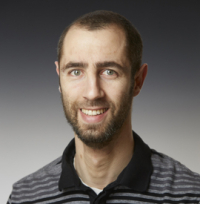
Sufism, Stereotypes, and Spiritual Struggle
I recently finished my fourth year of full-time teaching and I have noticed two consistent reactions that students have to course material in my Islam-focused courses (i.e., Islam, Islamic Mysticism, and The Qur’an): 1) Ability and willingness to readily acknowledge Islamophobia in American popular culture and 2) Appreciation for Sufi themes and literature. Although I may not have surmised how these two themes relate to one another pedagogically a few years back, I have come to see several connections and will use this blog post to explore some ways to take advantage of these student experiences in the classroom.
Conscious and Unconscious Islamophobia
Usually, on the first day of class, I write “Islam” on the board and solicit from students the first words that come to mind. Some hesitate to shout out “terrorism,” “anti-democratic” and the like, but I find that there are usually enough brave voices in the class to surface these collective social portrayals of the Muslim Bogeyman, and even evoke some cathartic laughter in the process. I find that this exercise, although rather straightforward, helps set a tone; it signifies to students that suppressing the obvious will hinder class discussion and probably their learning process as well.
Much later in the semester, often in written assignments but sometimes in class discussions as well, I find a regular cadre of students admit—at times with a combination of shame and gratitude—how troubled they are to realize the Islamophobic views they have known, or found, in their own minds for who knows how long. This proves unsurprising, however, as many college students today were in diapers on 9/11 and therefore know nothing of a world without the “War on Terror.” It’s significant that these timid disclosures tend to occur toward the end of the semester, because no matter how easy it is for students to identify and caricaturize broad social concerns early on, it takes time to reflect on how stereotypes affect them on an individual level.
Sufism and “Spiritual Jihad”
When we explore various Sufi themes it’s easy enough, usually unprompted by their instructor, for students to draw some sort of personal meaning from the course material. When we read Ghazali’s (d. 1111) Deliverer from Error, for example, many students find it compelling as it reflects a perennial quest for spiritual truth. I’ll often screen episodes, as well, from the BBC production “The Retreat”—a three-part documentary that observes participants at a Sufi retreat in southern Spain; the cast includes multiple archetypal characters such as spiritual-but-not-religious, rigid dogmatist, addict of technology, and an atheist. Thus students can thus usually find themselves in one or more of the characters.
In particular, a text I regularly teach is the 15th-century Sufi allegory, Yusuf and Zulaykha by ‘Abd al-Rahman Jami (d. 1492). Many of its central themes relate to challenges of confronting one’s inner demons, and it, therefore, offers some helpful models for students to consider as they confront their own latent or blatant preconceptions about Islam and Muslims. Yusuf and Zulaykha adapts the story of Yusuf (Joseph) from the 12th chapter of the Qur’an, except Jami’s version is much longer, has more details, and focuses on a love-struck female protagonist. Students often think she’s kind of crazy (or just crazy) because of her singular obsession with Yusuf. This obsession ultimately leads her to age physically and persist in a state of inconsolable grief. Eventually, however, once she realizes that it is not Yusuf per se whom she loves, but the divine reflection within Yusuf, her youthful beauty returns, she marries Yusuf, and they live happily ever after. The catalyst for her transformation takes place when she smashes the physical idols she had worshiped, which could symbolize the idols in her heart that had blocked her from True Love. Thus the story conveys useful pedagogical lessons on many levels: truth lies within us, it is we who block truth from becoming apparent, concealing the truth makes us sick and bitter, but also, our obsession with apparent manifestations of truth is highly seductive and difficult to ignore.
Struggling Against the Machine
One student in my Islamic Mysticism course wrote the following in a response paper late in the semester: “For those who approach this subject with any form of bias, I think must prepare for a clash of what we once viewed as fact with what we can now see as fact. This clash, for me at least, set forth a type of grief and shame.” I suspect that this student—like the protagonist in Yusuf and Zulaykha—arrived at his new perspective only after struggling deeply with his own shadows. Many Islamicists, including myself, find that teaching about Islam and Muslims requires students to go through a process of unlearning or de-programming—however you want to put it—the layers of fear and stereotypes that 21st-century media and society has drilled into their minds, often unconsciously. I think experiences like these are common—although in my own observations few students are willing to admit their feelings in this regard so candidly, even if they undergo similar transformations.
What, then, is the best way to guide students through the sometimes-painful process of navigating those parts of themselves that aren’t so pretty? The more I teach, the more I find myself letting students gradually and gently acknowledge their own struggles, rather than relying on the megaphone of my teaching platform. My shift, in this regard—as I intimated the beginning of this post—has resulted from consistently observing students, out of their own volition, desiring to put forth the difficult effort it takes to look inward with honesty and circumspection. Thus the concept ofjihad al-nafs (spiritual struggle) in Sufi traditions—as illustrated in Yusuf and Zulaykha or any number of other scenarios—can allow students not only to draw personal connections to centuries-old texts but also appreciate the difficulties and rewards of challenging oneself to learn and grow amidst a cultural machine that discourages such an endeavor.
Leave a Reply